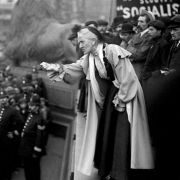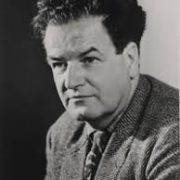MONTHLY BLOG 87, BURNED BOATS
If citing, please kindly acknowledge copyright © Penelope J. Corfield (2018)

|
Firework-flames @ Clipart flames-clipart.html (2018) |
What to confess this month, having burned boats last month, about my intention to finish a big never-ending writing project? First message: yes, it’s good to announce THE BOOK END, even if it still remains tantalisingly-nigh-but-not-yet-quite achieved. Burning one’s boats in public concentrates the mind and attention. Words flow from the keyboard. Deadlines hammer in the head. One feels intensely alive.
At the same time, all of life’s hazards and impediments take this declaration as a signal to attack. There is a serious leak in the bathroom, dripping water onto the stairs below. Urgent action is imperative. A car tyre goes flat at the wrong moment. Long-lost friends come round to call for a long, chatty visit. A close relative falls ill and needs attention. Other work commitments, entered into gaily months ago, suddenly become imminent. The email in-box, of course, overflows with multiple messages, which need sorting, to check that most are safe to ignore. But some are urgent requests from former students needing academic references for jobs which they seriously might get: such exercises of advocacy-at-a-distance need time and careful thought. All these intrusions from the rest of life are entirely predictable, but become major distractions when competing with THE BOOK END deadline.
Cyril Connolly (1903-74) has met with a lot of flak for writing that: ‘there is no more sombre enemy of good art than the pram in the hallway’.1 He is accused of being not only anti-baby but also misogynistic – implying that the little woman should either not have tempted the creative man to have sex in the first place – or, the worst having happened, should at least take the pram/baby out for a long bracing walk, leaving the creative genius alone, so that he can agonise over his failure to write in complete silence.
Yet Connolly wasn’t really blaming others. Instead, he was probing his own painful sense of failure. He instanced other damaging factors which may also inhibit creativity. Those embrace: drink, apathy, boredom, getting sidetracked into journalism – and coping with the burden of expectation, after early ‘promise’. There’s good scope for debate as to which of those experiences is the most destructive. These days, a later Connolly would have to add: getting bogged down by emails and social media. So a bit of sympathy is in order. We may all have our own ‘enemies’, whether internally within ourselves or externally in the pram-in-hallway-equivalent or even both.
Lastly, declaring THE BOOK END of a big project teaches another significant lesson. Finishing is not as simple as dotting the final full-stop of the final sentence. As my partner Tony Belton is fond of saying: ‘It isn’t ended until it’s ended’. He learned that when setting up computer schemes in the 1970s. People would constantly say: ‘It’s just a fortnight away from completion’. But each fortnight would turn into another fortnight. There’s a confession of that syndrome in the first iteration of the on-line fashion-retail business, Boo-Hoo, whose bankruptcy in 2000 was a scandalous part of the collapse of the dotcom bubble. Ernst Malsten and his colleagues kept promising their backers that the innovative on-line system would be activated ‘within weeks’. But the weeks kept going by. Too many different people were inputting and changing the operating system, which was getting further from completion, not closer. Too late, realisation dawned. ‘It was a mass delusion. We either hadn’t seen, or had simply closed our eyes to, all the warning signs’.2 Boo-Hoo indeed.
Finishing a big writing project is a different exercise, under one-person control. Yet many last touches are still required: last re-reads; last edits; last checks to footnotes, illustrations, and bibliography; last inputs from the publisher’s readers; last decision about the final snappy dictum. So announcing THE BOOK END helps to speed things onwards. But it isn’t ended until it’s ended.
1 C. Connolly, Enemies of Promise (1938).
2 E. Malmsten and others, Boo-Hoo: $135 Million Dollars, 18 Months … A Dot.Com Story from Concept to Catastrophe (Arrow Books, 2002), p. 233.
For further discussion, see Twitter
To read other discussion-points, please click here
To download Monthly Blog 87 please click here










